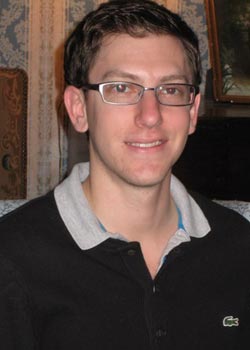
Women's Studies represents an enormous turning point
in my life. Its significance requires some backtracking to explain.
When I applied to Duke in 2007 I was, first and foremost, a
debater. From a
young age, I had been informally debating with people, my parents included, and
was accustomed to hearing adults declare "Oh, you're going to be a lawyer."
With four years of "value debate" in high school under my belt, I entered
college with this goal in mind and signed up for training in philosophy and
ethics. But I quickly discovered that philosophy frustrated me as much as it
interested me. I was learning the fine critical nuances of history's great philosophers, but the
humanist premises implicit in their works went obliquely unchallenged. I wanted to quarrel with Kant, to
question why the rational human was the starting point of his metaphysics. I
wanted to indict the premises of my disciplinary lessons even as I was learning
them.
Confident in my pre-law aspirations but floundering
academically, I changed majors to Women's Studies following the fall of my
junior year after earning what amounts to a philosophy minor. In the introductory
seminar taught by Professor Ranji Khanna, I was immersed in a form of learning
which questioned its own assumptions as strongly as it questioned the
ideologies opposing it. I was captivated by the rich archive of intra-feminist
debates: this was a whole new kind of learning. Far from discouraging
curmudgeonly behavior, Women's Studies professors invited students to prod their teaching and to question its implicit premises. From philosophy and critical theory to anthropology and psychology, every disciplinary apparatus was viewed as welcome opposition.
Throughout my time in the Women's Studies program, I have been consistently
pushed not only to deepen my understanding of feminist and queer works but to
broaden my academic horizons. Each course has provided a different opportunity to
synthesize and connect earlier conversations, building a rich intellectual resume.
For me, the major has delivered everything it promised to from
the outset. The
intro imposed a certain lack of normativity on classroom discussion and since
then my studies have covered all manner of the so-called gross and obscene.
This year I'm working on an honors thesis with Professor Robyn Wiegman called "The Politics of Sexxx," a theoretical project exploring the complex
intersections of sex and politics. Sexxx is spelled with three x's in the title
in order to navigate the slippage between "sex" as intercourse and "sex" as
sexual difference (and to clarify my project's focus on the former). But the
major has also provided an especially personal education. My Women's Studies
professors, especially Robyn, have engaged with me as a multidimensional human
being and never as an anonymous student. I am deeply grateful.
So, I entered Duke anticipating a career in criminal defense, and I will
leave it anxious to begin a career in Family Law. Women's Studies completely transformed my
academic and extracurricular life, and while it was not always easy being a man
in a woman's world, I could not be happier for my education. Clients who have
experienced domestic violence or sexual assault require not just legal but
also practical, emotional, and even spiritual guidance. A good Family Law
attorney must see beyond the legal issues at work and understand the complex experiences of his/her clients in order to be effective. I think I'm leaving
with the right major.